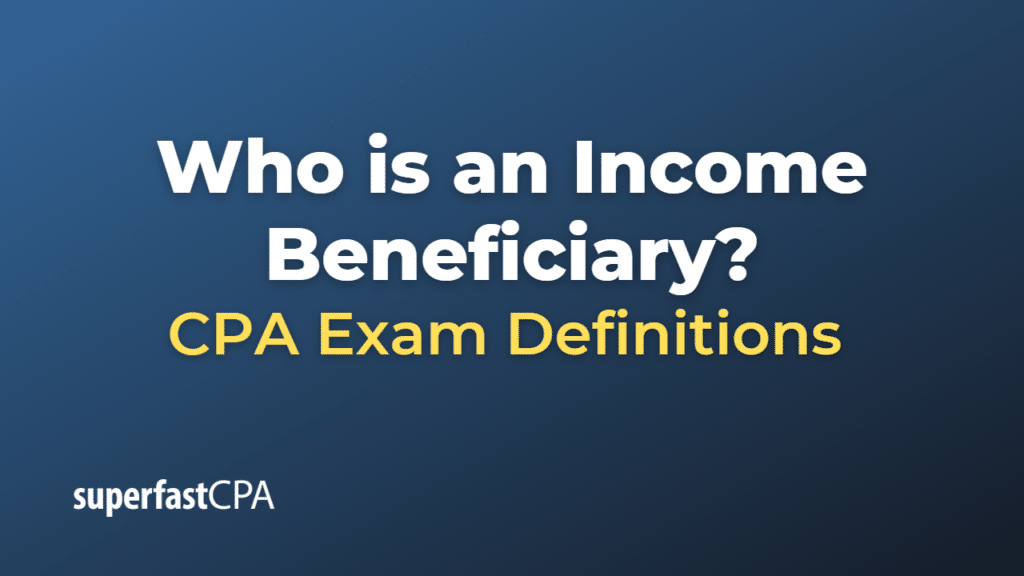Income Beneficiary
An income beneficiary is a person or entity designated to receive income from a trust. Trusts can be established for a variety of reasons, such as to manage assets on behalf of minor children, to provide for a surviving spouse while preserving an estate for children, or to support charitable causes.
In the context of a trust, there are often two types of beneficiaries: income beneficiaries and remainder beneficiaries. Income beneficiaries have the right to receive income generated by the trust’s assets for a specified period. This income can be generated through interest, dividends, rents, or other income-producing assets within the trust.
The income beneficiary’s rights are typically temporary and last for the term of the trust, or until a specified event occurs (like the death of the income beneficiary or reaching a certain age). After this, the trust’s remaining assets, or “remainder,” is distributed to the remainder beneficiaries.
For example, in a family trust, a surviving spouse may be named the income beneficiary, receiving income from the trust during their lifetime. Upon their death, the children may be designated as remainder beneficiaries, receiving the trust’s remaining assets.
Example of an Income Beneficiary
Let’s consider an example of a hypothetical family trust:
John and Mary have two children and want to ensure their well-being and financial security. John and Mary set up a trust and transfer their assets into it, including their savings, investments, and properties.
John and Mary designate themselves as the trustees, meaning they manage the assets in the trust. They also establish that after their deaths, their oldest child, Anna, will become the trustee.
In their trust arrangement, John and Mary specify that after their deaths, the income generated by the trust’s assets (from dividends, rent, interest, etc.) should go to Anna during her lifetime. This makes Anna the income beneficiary of the trust.
The trust also specifies that after Anna’s death, the remaining assets in the trust (the ‘remainder’) should be distributed equally between their two grandchildren, Sam and Liz. This makes Sam and Liz the remainder beneficiaries.
So, in this example, Anna is the income beneficiary, as she has the right to receive income from the trust’s assets during her lifetime. Sam and Liz, on the other hand, are remainder beneficiaries, as they will receive the remaining trust assets after Anna’s death.













